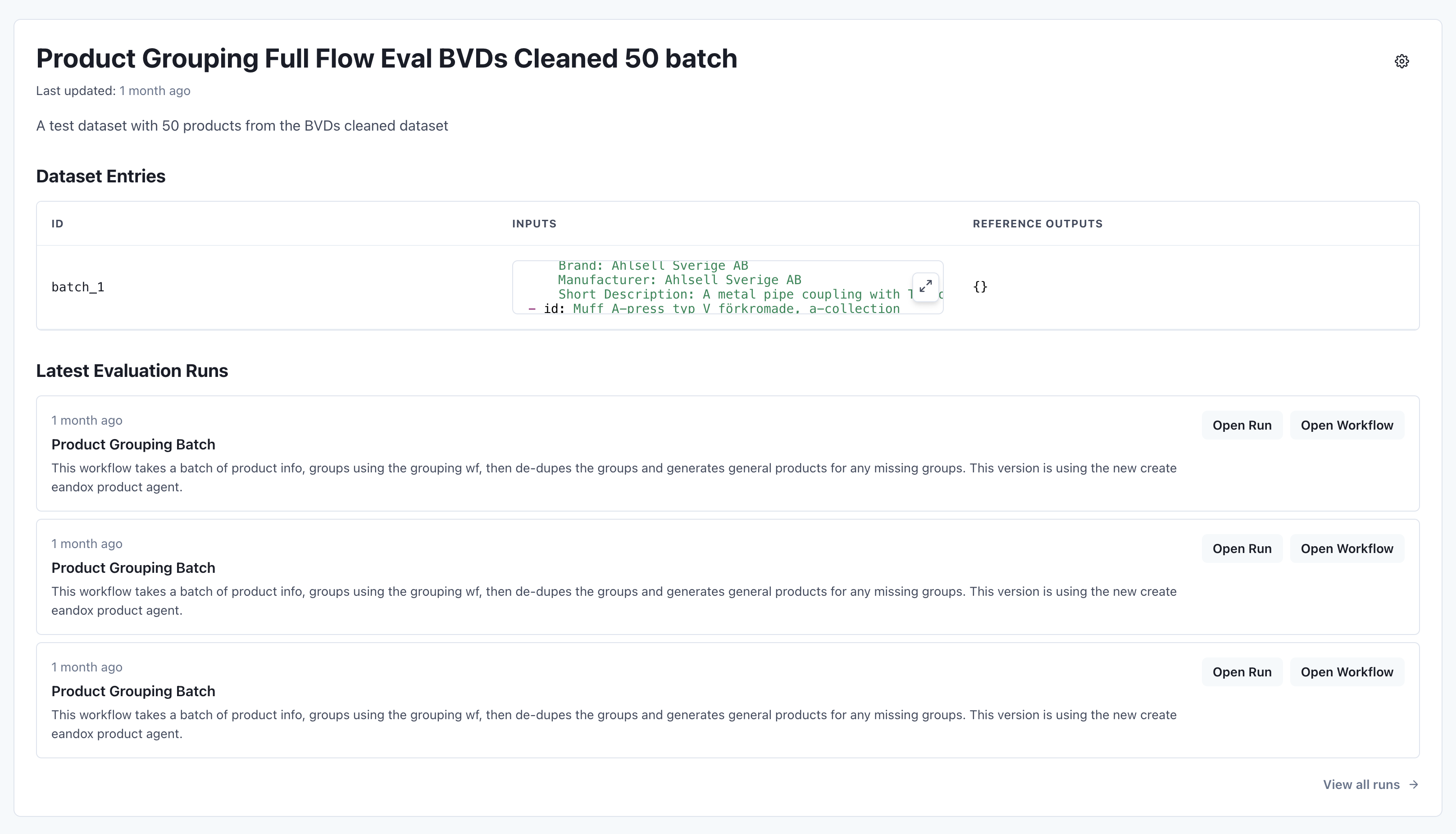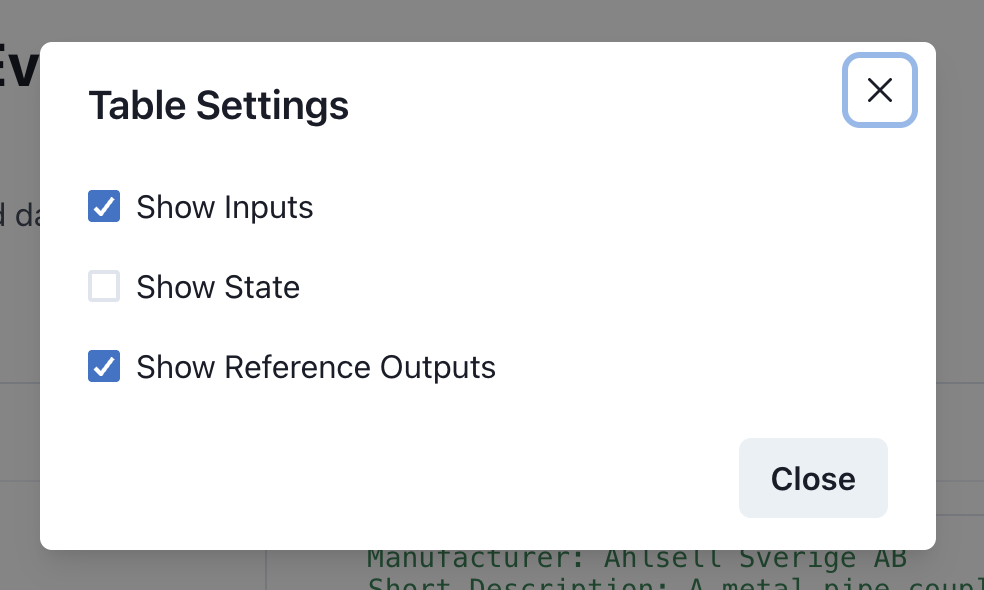Evaluation Datasets
Evaluation Datasets are collections of test data used to measure the performance of your AI workflows.
Overview
The Datasets page provides a centralized view of all your evaluation datasets:

Managing Datasets
In the Datasets list, you can:
- View all available evaluation datasets
- See when each dataset was created
- Filter datasets by their active status
- Access detailed information for any dataset
Dataset Details
When you select a dataset, you'll see its detailed information:

The Dataset Details page includes:
- Dataset name and description
- Last updated timestamp
- Dataset contents overview
- List of dataset entries with their inputs
- Reference outputs (expected results)
- History of evaluation runs using this dataset
Dataset Entries
Each dataset contains entries that will be used to evaluate your workflows:
- ID: A unique identifier for each entry
- Inputs: The data that will be fed into your workflow (e.g., product descriptions, queries)
- Reference Outputs: The expected outputs to compare against your workflow's results
Table Settings
You can customize how dataset entries are displayed using the Table Settings:

Available display options include:
- Show/Hide Inputs: Toggle visibility of input data
- Show/Hide State: Toggle visibility of intermediate state information
- Show/Hide Reference Outputs: Toggle visibility of expected outputs
Latest Evaluation Runs
The Dataset Details page also shows a history of recent evaluation runs performed with this dataset:
- Timestamp of each evaluation run
- Workflow name that was evaluated
- Brief description of the workflow
- Options to open the run details or workflow
Running Evaluations
To run an evaluation against a dataset:
- Navigate to the Dataset Details page
- Select the workflow you want to evaluate
- Configure any evaluation parameters
- Click "Run Evaluation"
Best Practices
For optimal evaluation dataset management:
- Include diverse test cases that cover edge cases
- Maintain reference outputs that reflect desired behavior
- Version datasets when significant changes are made
- Use consistent formatting for inputs and reference outputs
Next Steps
- View Evaluation Runs - Check the results of workflow evaluations
- Return to Dashboard